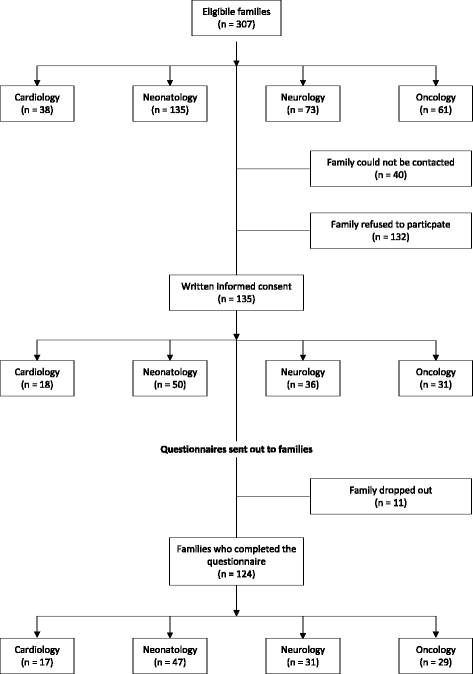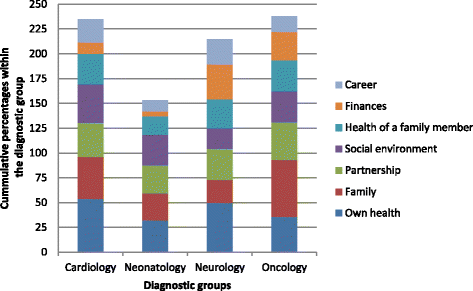When parents face the death of their child: a nationwide cross-sectional survey of parental perspectives on their child's end-of life care
- PMID: 26956995
- PMCID: PMC4784404
- DOI: 10.1186/s12904-016-0098-3
When parents face the death of their child: a nationwide cross-sectional survey of parental perspectives on their child's end-of life care
Erratum in
-
Erratum to: When parents face the death of their child: a nationwide cross-sectional survey of parental perspectives on their child's end-of life care.BMC Palliat Care. 2017 Feb 17;16(1):16. doi: 10.1186/s12904-017-0188-x. BMC Palliat Care. 2017. PMID: 28212651 Free PMC article. No abstract available.
Abstract
Background: Parents facing the death of their child have a strong need for compassionate professional support. Care services should be based on empirical evidence, be sensitive to the needs of the families concerned, take into account the heterogeneity within the medical field of paediatrics, and fit into the local health care system. We need to better understand the perspectives of parents facing the death of their child in order to guide further development and evaluation of specialised paediatric palliative and end-of-life (EOL) care services.
Methods: Questionnaire survey to assess the EOL care perspectives of a Swiss population-based sample of bereaved parents who had lost a child due to a cardiac, neurological or oncological condition, or during the neonatal period in the years 2011 or 2012. The parental perspective was assessed with a newly developed and tested instrument that was structured according to six evidence-based quality domains. Responses regarding parental experiences and perceived satisfaction are described. Differences between the four diagnostic groups are analysed using a generalized estimation equation to account for the dyadic data structure.
Results: Of 307 eligible families, 267 could be contacted and 135 (51%) consented to participate in this questionnaire survey. Our findings show positive parental experiences of their child's EOL care and high perceived satisfaction with the care their child received. Parents of a child with cancer rated their experiences highest in most of the six quality domains and reported the highest satisfaction with care. The lowest scores were mainly reported by parents from the neurology group, with the exception of the shared decision making domain, where parents of neonates reported significantly less positive experiences.
Conclusions: Although positive in general, our study results suggest some areas for improvement. The integration of specialised paediatric palliative care has the potential to minimise lost opportunities to support and assist parents.
Figures



References
Publication types
MeSH terms
LinkOut - more resources
Full Text Sources
Other Literature Sources

